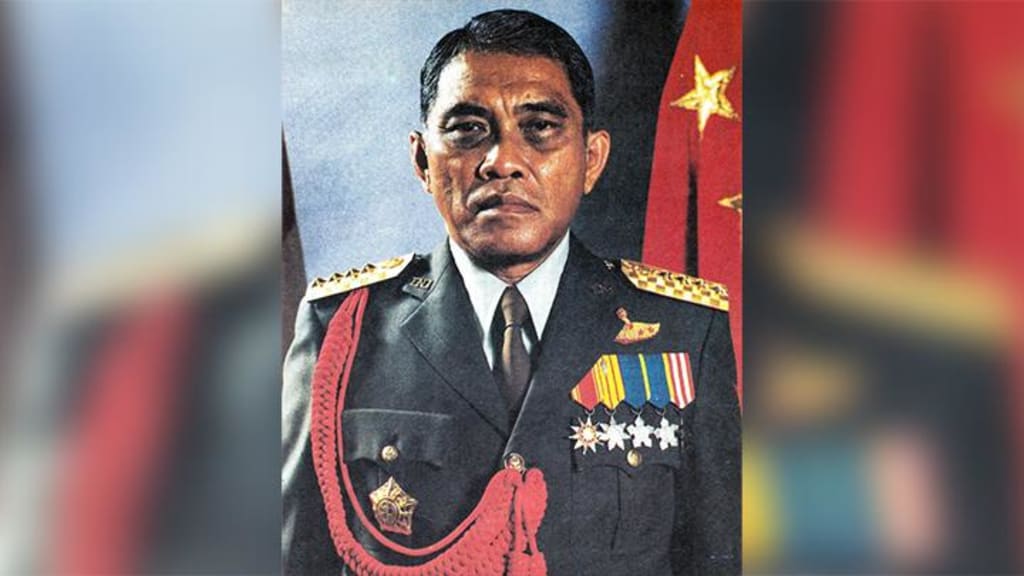Leonardus Benyamin Moerdani
Serving the Nation, Not Individuals - A Model for Modern Work Ethics

Who does not know Leonardus Benyamin Moerdani? Leonardus Benyamin Moerdani, often referred to as LB Moerdani or Benny Moerdani, was a highly respected military figure during the New Order era due to his proficiency in military affairs, including his leadership in the mission to liberate Garuda Airways flight number 203 at Don Muang International Airport, Thailand, also known as Operation Woyla, on March 28, 1981.
LB Moerdani was born in Cepu, Central Java, on October 2, 1932. His military career began when LB Moerdani took part in an assault on a Kempeitai headquarters in Solo after the Kempeitai refused to surrender to Indonesian troops. When the People's Security Army (Tentara Keamanan Rakyat/TKR), the precursor to the Indonesian Armed Forces, was formed, LB Moerdani joined a Student Army (Tentara Pelajar) unit, which came under the authority of an Indonesian Army Brigade. During the Second Dutch military offensive, Moerdani was part of the Abdoel Latif Company of Tentara Pelajar defending the city of Surakarta. The highest position LB Moerdani held was as the Commander of ABRI (Armed Forces of the Republic of Indonesia, now known as the Indonesian National Armed Forces or TNI), with the rank of General.
LB Moerdani's position was abruptly dismissed by the then-President of Indonesia, Soeharto, on February 24, 1988. It was rumored that the dismissal occurred because LB Moerdani dared to criticize the business activities of Soeharto's children. Additionally, there were concerns that LB Moerdani might stage a coup, given his extensive influence within the military and his expertise in intelligence, controlling vast intelligence networks in Indonesia. Soeharto also knew that LB Moerdani was not easily loyal to individuals but was loyal to his own principles. One of the principles he upheld was, “Mengabdi itu kepada negara, bukan kepada orang" (Serve the country, not individuals).
"Mengabdi itu kepada negara, bukan kepada orang" — "Serve the country, not individuals." This powerful statement encapsulates a principle of loyalty and dedication to a higher cause, transcending personal allegiances and emphasizing the importance of serving a collective mission. This philosophy is not only relevant to military and national service but also holds profound implications for the modern workplace, where the ethos of serving a greater organizational goal can be a cornerstone of professional success and personal fulfillment.
Commitment and Organizational Loyalty
At the heart of Moerdani's quote is the concept of loyalty to the nation. In a corporate context, this translates to organizational loyalty. Employees who prioritize the company’s goals over individual agendas exhibit a strong sense of commitment and reliability. This loyalty fosters a cohesive work environment where team members are dedicated to the organization's mission and vision, rather than personal gain or favoritism.
Modern Application :
A. Commitment : Reliable employees who remain committed to their roles and responsibilities contribute significantly to organizational stability and team morale.
B. Unity : Prioritizing the company's objectives over personal interests helps in building a unified team working towards common goals, thereby enhancing overall productivity and workplace harmony.
Integrity and Ethical Decision-Making
Moerdani’s statement also implies a call to integrity — making decisions based on what is best for the country, or in the workplace, what is best for the organization. This involves ethical decision-making and maintaining a strong moral compass, even when faced with challenging situations. Employees who uphold integrity are seen as trustworthy and dependable, creating an environment of mutual respect and ethical standards.
Modern Application :
A. Ethical Leadership : Leaders who embody integrity inspire trust and set a positive example for their teams, fostering an ethical work environment.
B. Sustainable Practices : Making decisions that align with the organization’s ethical standards ensures long-term sustainability and a positive corporate reputation.
Resilience and Perseverance
Serving a higher cause often requires resilience and perseverance, qualities that Moerdani demonstrated throughout his career. In the workplace, resilience is crucial for overcoming setbacks and maintaining productivity under pressure. Employees who are resilient can navigate challenges and adapt to changes, ensuring continuous progress towards the organization's goals.
Modern Application :
A. Adaptability : Resilient employees can adapt to new challenges and changes, maintaining performance levels and contributing to the organization's success.
B. Persistence : Perseverance in the face of difficulties ensures that employees continue to work towards their objectives, fostering a culture of determination and continuous improvement.
Teamwork and Collaboration
Moerdani’s emphasis on serving the nation underscores the importance of collective effort over individual achievement. In the workplace, this principle translates to the value of teamwork and collaboration. When employees focus on the success of the team and the organization as a whole, rather than individual accolades, it leads to more effective collaboration and better results.
Modern Application :
A. Team Spirit : A collaborative approach encourages sharing of ideas and resources, leading to innovative solutions and improved outcomes.
B. Supportive Environment : Focusing on team success fosters a supportive work environment where colleagues help each other grow and succeed.
Dedication to Mission
Finally, Moerdani’s quote highlights the importance of being dedicated to a mission. In a corporate setting, having a clear understanding of and commitment to the organization’s mission can drive motivation and engagement among employees. This dedication ensures that every action taken aligns with the broader objectives of the company.
Modern Application :
A. Goal Alignment : Ensuring that individual goals are aligned with the organization’s mission helps in maintaining a clear direction and purpose in work.
B. Employee Engagement : A strong connection to the organizational mission enhances employee engagement and satisfaction, leading to better retention and performance.
Conclusion
Leonardus B. Moerdani’s directive to "serve the country, not individuals" offers timeless wisdom that can be effectively applied to the modern workplace. By fostering loyalty, integrity, resilience, teamwork, and mission-driven dedication, employees can significantly contribute to the success and ethical standing of their organizations. Embracing these soft skills not only leads to professional success but also cultivates a fulfilling and principled work life, reflecting the enduring relevance of Moerdani’s legacy.
About the Creator
Dimas Seti Aditya
An insightful writer, delving into human behavior with empathy and depth.
My diverse interests shine through in engaging storytelling that inspires growth.
Enjoyed the story? Support the Creator.
Subscribe for free to receive all their stories in your feed. You could also pledge your support or give them a one-off tip, letting them know you appreciate their work.






Comments (1)
Nice tribute.